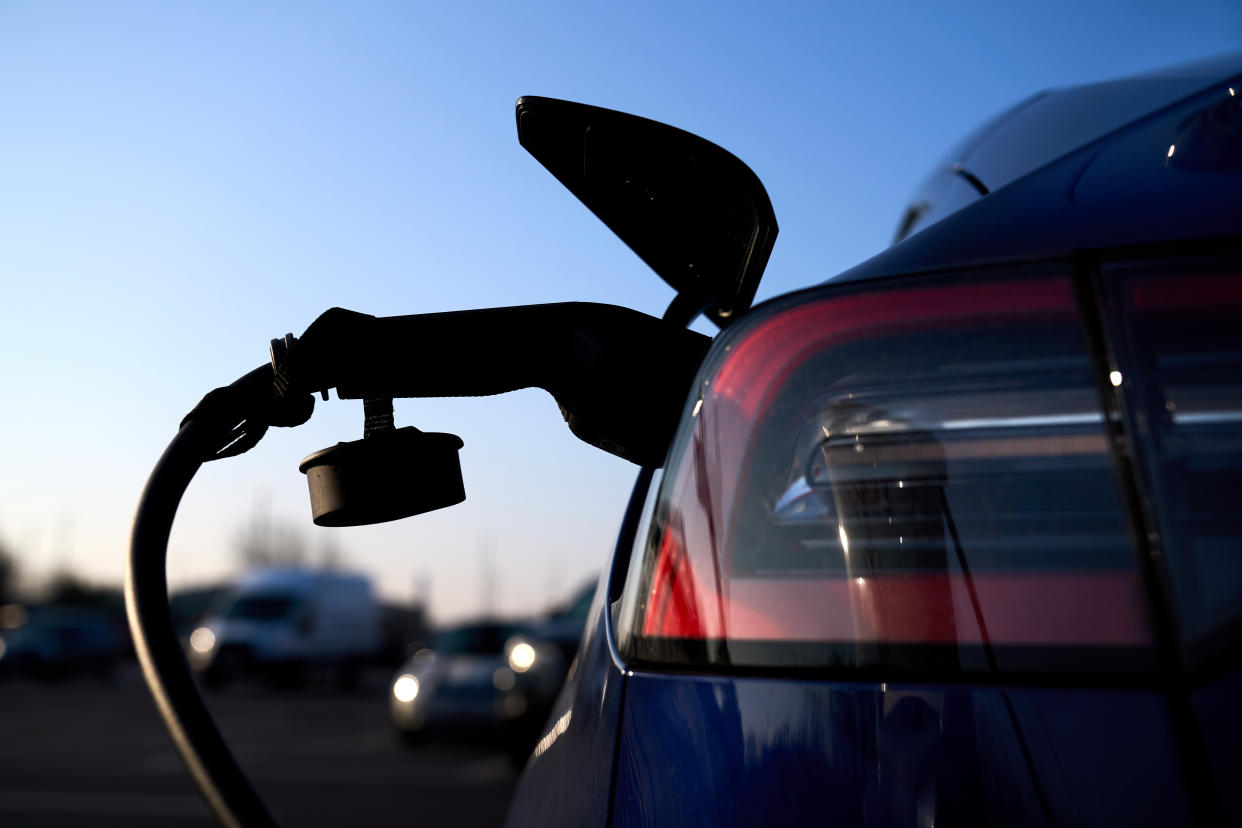UK to have 300,000 electric car charging points by 2030

The UK is set to reach 300,000 electric car charging points by 2030, overtaking the number of fuel pumps on the roads, as the government looks to reduce carbon emissions and achieve its net zero target.
The Department for Transport (DfT) said that the number of charge points by the end of the decade would be the equivalent to almost five times the number of fuel pumps at present.
Britain currently has just 30,000 public EV charging points in the country.
The government added the £500m ($659m) scheme, which forms part of its wider £1.6bn Electric Vehicle Infrastructure Strategy, would include a £450m spend to boost public charging stations and on-street charging for those without driveways.
Councils will also be able to bid for a share of £10m in funding to boost public charging opportunities in their area.
Read more: European stocks muted as Biden arrives in Brussels to offer US gas to EU
"We're powering ahead with plans to help British people go electric, with our expanding charging network making journeys easier right across the country,” prime minister Boris Johnson said.
“Clean transport isn't just better for the environment, but is another way we can drive down our dependence on external energy supplies.
“It will also create new high-skilled jobs for our automotive and energy sectors and ultimately secure more sustainable and affordable motoring for all.”
Britain has committed to a ban on new petrol and diesel cars from 2030, and has previously announced that all the UK's electricity will come from renewable sources by 2035.
As part of the new plan, the DfT also announced that it will become mandatory for charge point operators to provide real-time data about their charge points and prices, as well as accepting contactless payments and meeting a 99% reliability standard.
Watch: Energy crisis: Is net zero and environmental policy responsible for rising energy bills?
Transport secretary Grant Shapps said: "No matter where you live – be that a city centre or rural village, the north, south, east or west of the country, we're powering up the switch to electric and ensuring no-one gets left behind in the process.
“The scale of the climate challenge ahead of us all is well known and decarbonising transport is at the very heart of our agenda.”
However, motoring groups have criticised the move, saying that the rollout is still not fast enough to meet growing demand.
Read more: UK car production slumps 41% in February
Edmund King, president of motoring group AA, said: "As we advance quickly to the 2030 deadline for new zero-emission vehicles, it is vital that we get our charging infrastructure in order.
"While great progress has been made, there is still much to do to convince drivers on the number, and importantly reliability, of charge posts.
"To bring confidence and power to potential electric car drivers we need more, and more reliable and accessible charge points as soon as possible."
Meanwhile, SMMT chief executive Mike Hawes, said: “If industry and consumers are to have the certainty they need to invest, commensurate and binding targets must be set for infrastructure provision.
“Deployed nationally and at pace, this expansion would give drivers confidence they will be able to charge as easily as they would refuel, wherever they are.”
Watch: Why are gas prices rising?


